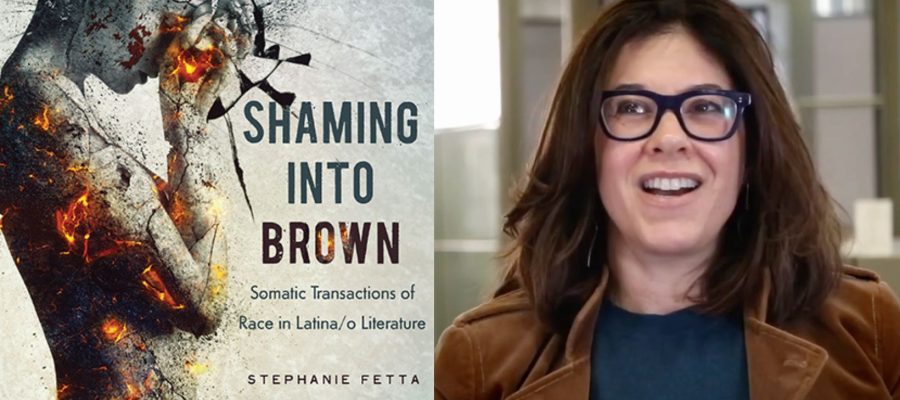Watch and listen to our interview with Dr. Stephanie Fetta, author of the award-winning book, Shaming into Brown: Somatic Transactions of Race in Latina/o Literature, which ties insights from psychology, sociology, and the STEM fields into Latinx literature in order to explain how our bodies are essential to the processes of subjugating others through shame, as well as how we who are subjugated hold the shame of subjugation and integrate it into our identities and psyches.
Renowned scholar of critical race theory, Richard Delgado, declared that Dr. Fetta’s book is “scorching” and that it “explains why minority persons—even ones of great achievement—often feel down on themselves. A sobering read, Shaming into Brown should be of great interest to readers of psychology, ethnic studies, Latino studies, civil rights, and literature.”
Dr. Fetta writes, “The specifics of what triggers racial shaming and how Latin@/xs respond are compendious subjects.” Her book features a wide range of Latinx authors and works, including Piri Thomas’ Down These Mean Streets, Nelly Rosario’s Song of the Water Saints, Oscar “Zeta” Acosta’s The Autobiography of a Brown Buffalo, Octavio Solís’ Pulitzer Prize–nominated play Lydia, and American Book Award–winning The Ice Worker Sings and Other Poems by Andrés Montoya. Fetta proposes that these works demonstrate how “scenes of racialization consist of four steps: step one, withdrawal of rapport; step two, deanimation; step three, confirmation; and step four, foreclosure.”
The interview was a follow up to a talk Dr. Fetta gave at the University of Massachusetts Amherst Libraries, titled “Am I supposed to be ashamed of being brown?” One participant of that event had this to say: “Dr. Fetta encouraged us to participate with exercises, comments, questions opening a space for reflection and meaningful communication. The event, which became a highly dialogical and productive conversation instead of a traditional lecture, was an exceptional opportunity for the attendees to discuss their own experiences of shame, pain, and social exclusion.”
This video is a collaboration with staff from the Digital Media Lab and the Academic Engagement departments of the UMass Amherst Libraries. Many thanks to Adam Quirós of the Digital Media Lab for production of the video.

